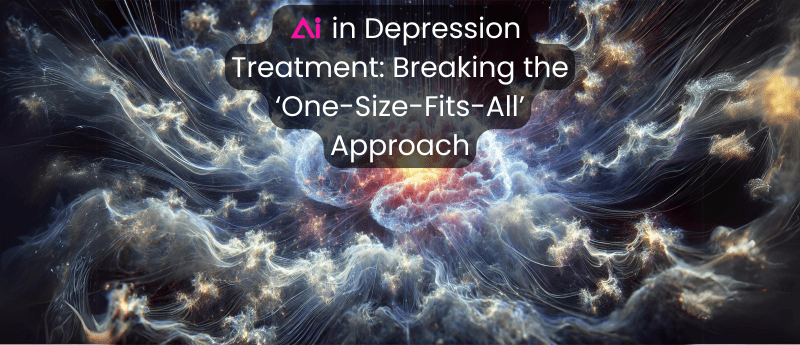AI in Depression: Breaking the ‘One-Size-Fits-All’ Approach

Researchers from the University of Illinois Chicago (UIC; IL, USA) are developing new AI tools that could assist doctors in providing personalised diagnosis and treatment for depression.
UIC’s College of Medicine will test a smartphone app, an AI voice assistant, and other technologies. These tools will be examined to see if they can identify the specific treatments patients need for depression.
Additionally, researchers will explore whether these AI tools can assist doctors in delivering on-demand treatments.
Study Methodology
The study is supported by over $10 million in grants from the National Institute of Mental Health (MD, USA) and the National Institute on Aging (MD, USA). It aims to evaluate how AI systems can improve access to psychiatric care and develop precision psychiatry.
One key tool in the study is BiAffect, a smartphone app created by UIC researchers. This app analyzes typing patterns to assess cognitive health and monitors patients between clinical visits. The goal is to detect changes in behavior that might reveal different types of depression.
Dr. Jun Ma, a lead researcher, explains that the team wants to gain a deeper understanding of depression. By using digital tools, they hope to track the progression of the disease and predict how patients will respond to treatments. This, in turn, will allow them to provide precision treatments tailored to each patient’s needs.
“We want to use new digital assessment tools to better monitor and predict the disease trajectory and treatment response of people with depression. Then we can provide patients with the kind of precision treatment that can work for them now […] and also use new digital tools to deliver proven therapies at scale.”
No “One-Size-Fits-All” Treatment
Recent research from Stanford University (CA, US) highlights the need for such personalized care. The study found six distinct depression biotypes, each responding differently to specific treatments.
These findings emphasize the importance of moving away from a “One-Size-Fits-All” approach. Therefore, AI could play a crucial role in helping doctors identify these subtypes and offer targeted treatments.
In the future, AI’s ability to detect different depression types could lead to more personalized and predictive treatments. This would significantly improve the quality of care for those struggling with various forms of depression.
Can AI Decode Human Emotions?
AI has made significant progress in mental health, such as diagnosing OCD and using virtual reality therapies. However, AI still faces challenges in fully understanding human emotions.
This limits its wider application in mental health care. As a result, future research must focus on creating AI tools that are more empathetic and aware of context. These tools should enhance, rather than replace, human expertise in mental health.
